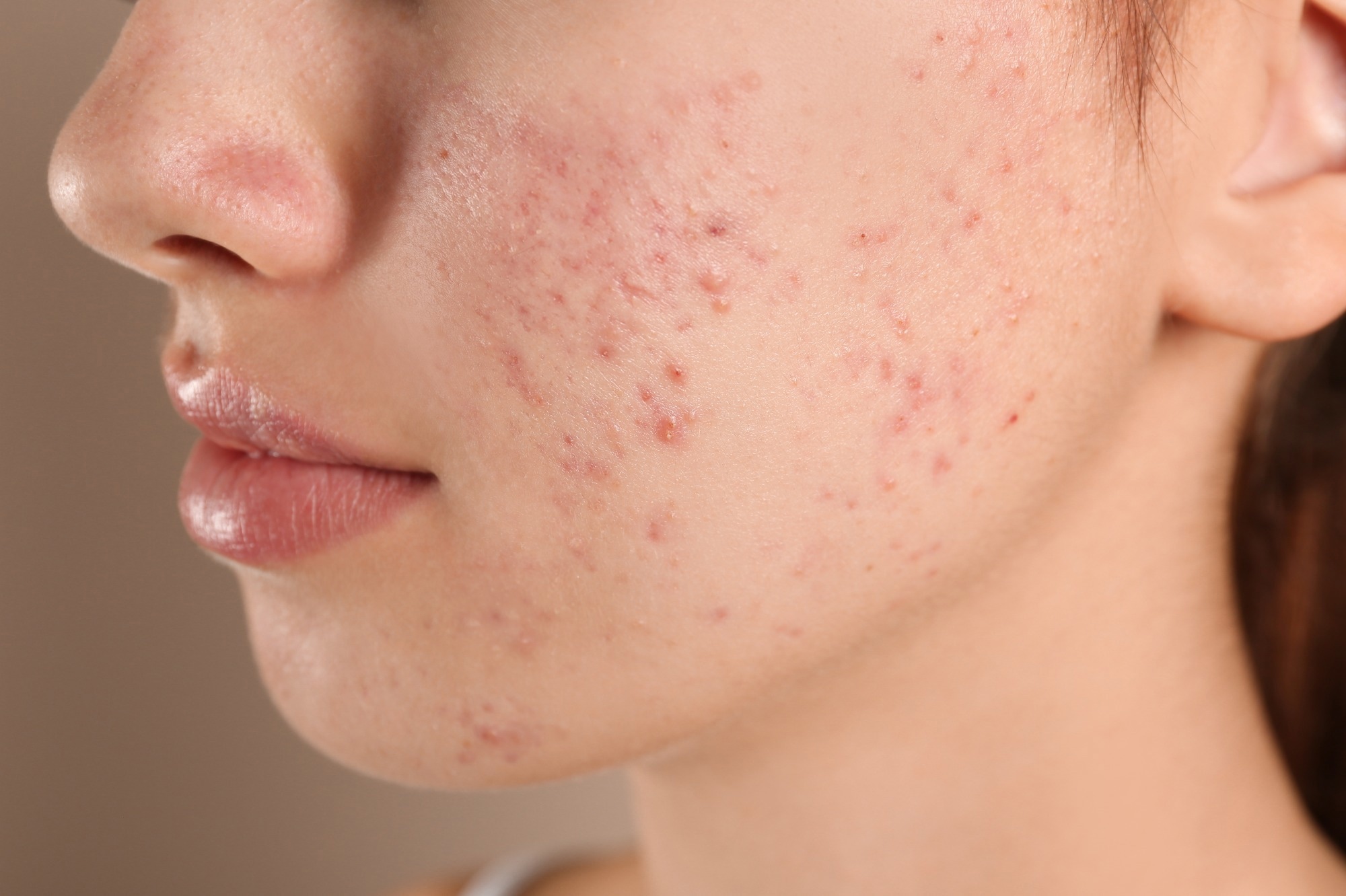Acne has been a source of distress for generations, primarily because it often develops on affected individuals’ faces and can often be perceived as the result of poor hygiene. As a result, many people with acne struggle with poor self-esteem, which can have detrimental effects on their mental health.
 Study: Evaluation of stigma toward individuals with acne. Image Credit: New Africa / Shutterstock.com
Study: Evaluation of stigma toward individuals with acne. Image Credit: New Africa / Shutterstock.com
About the study
The scientists conducted an internet survey that included four portraits of adults that were digitally touched up, which led to a final total of 12 portraits. These portraits represented both males and females of light and dark skin tones with mild or severe acne, in addition to the original portraits that were acne-free.
The enhanced portraits were then shownrandomlym to a convenience sample of adult society as represented by survey respondents recruited from the ResearchMatch online platform. Only one portrait was presented to each participant, whowase then asked to answer questions relating to their attitudes towards the person in the picture.
What did the study show?
About 1,360 respondents completed the entire questionnaire. These study participants had a mean age of 42 years, 68% of whom were female. Most of the study cohort were White and had high levels of education.
Over 25% of the respondents agreed that acne was a purely cosmetic problem. This opinion is in stark contrast to that of healthcare managers, who occasionally refuse to cover acne treatment on the basis that it is not a medical issue. This is a crucial observation that the broader medical community should consider, as the findings of this study demonstrate that acne is socially stigmatized, thereby impacting a wide range of social interactions and even economic opportunities.
Most respondents said that acne was not just an adolescent issue. However, over 75% of respondents believed that acne resolves independently.
The current study reveals that acne remains a source of social aversion directed toward the victim, particularly among those with darker skin tones. This has been reported in several previously published studies for a variety of skin conditions. Most participants reported wanting to keep a greater social distance from people with acne. Moreover, these individuals were less likely to be comfortable being friends with someone who had severe acne as compared to a person without acne. This extended to not hiring, having physical contact with, dating, and including people with severe acne in photos posted online.
People with severe acne were at a greater risk of being adjudged dirty, stupid, unlovely, immature, and unreliable and would find it more difficult to be liked by others. This desire to distance oneself socially and the tendency to stereotype the acne-prone individual was stronger if the affected individual was of a darker skin tone; however, the sex of the individual did not produce any obvious effect.
Participants who currently or once had acne had less unfavorable attitudes towards acne sufferers. Interestingly, the bias against those with acne extended across race, sex, ethnic origin, and occupation, was it was even reported among healthcare workers.
What are the implications?
Stigmatizing attitudes toward patients with acne existed across a variety of social and professional scenarios.”
The stigmatization of acne significantly affects the daily lives of affected people, thereby limiting their ability to form meaningful relationships, find jobs, and earn respect. The increased intensity of these effects among those with darker skin should be studied to identify the source of such discriminatory findings, whether in racism or because acne is differently caused and manifested among dark-skinned.
The study findings emphasize the urgent need for future studies to explore how communities can change views that acne is the victim’s fault while also providing acne care to prevent such effects by removing the lesions.